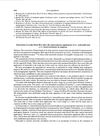Search
for
Sort by
Research
660-690 / 1000+ resultsresearch Prostate Cancer and Androgenic Alopecia: The Role of Finasteride as a Dual Agent
Finasteride treats hair loss and reduces prostate cancer risk.
research Postsclerotherapy Hyperpigmentation: A Histologic Evaluation
Most patients' skin darkening after sclerotherapy fades on its own within 6-24 months.

research Investigating the Role of Various Extracellular Matrix in Androgenetic Alopecia: Insights from Immunostaining and Quantitative Analysis - A Pilot Study
ECM changes may play a role in hair loss, with differences between males and females.

research Aryl Hydrocarbon Receptor Overexpression in Miniaturized Follicles in Female Pattern Hair Loss
Aryl hydrocarbon receptor overexpression found in miniaturized hair follicles in female hair loss.

research Dermatologic Side Effects of Psychotropic Medications
Psychotropic medications can cause skin reactions, including severe conditions like SJS and TEN, and it's important for psychiatrists to recognize and manage these side effects.

research Dermatologic Manifestations of COVID-19: A Comprehensive Systematic Review
COVID-19 can cause skin issues like chilblains and rashes, which may help in early detection, especially in patients without other symptoms.

research Dermatologic Reactions to Targeted Therapy
Targeted cancer therapies can cause skin side effects, which should be treated early to help patients' quality of life and treatment adherence.

research Dermatologic Adverse Effect of Subcutaneous Furosemide Administration in a Cat
A cat developed skin problems from a certain brand of injected water pills, which went away after switching brands.

research Dermatologic Side Effects of Systemic Targeted Anticancer Therapy
Cancer treatments targeting specific cells often cause skin, hair, and nail problems, affecting patients' lives and requiring careful management.

research Alterations in Scalp Blood Flow After the Epicutaneous Application of 3% Minoxidil and 0.1% Hexyl Nicotinate in Alopecia
Minoxidil didn't increase scalp blood flow for hair growth, but hexyl nicotinate did.

research Common Dermatologic Conditions
The document concludes that quick referral and appropriate treatments are crucial for managing common skin conditions and preventing permanent damage.

research Botanicals With Dermatologic Properties Derived From First Nations Healing: Part 1—Trees
Compounds from certain trees used by First Nations people show potential for treating skin conditions and promoting hair growth, but more research is needed to confirm their safety and effectiveness.

research Alopecia And Ocular Alterations: A Role For Minoxidil?
Minoxidil, a common alopecia medication, might cause eye changes due to its properties and lack of tissue selectivity.

research Epigallocatechin-3-Gallate Inhibits Paclitaxel-Induced Apoptosis Through the Alteration of MicroRNA Expression in Human Dermal Papilla Cells
Green tea extract helps prevent cell death and supports cell survival in hair cells exposed to a chemotherapy drug.

research The Possible Association of Female Pattern Hair Loss and Alteration in Serum Cholecalciferol Level
Low vitamin D levels can significantly contribute to hair loss, especially in women aged 35-45. Correcting these levels early may help prevent and treat this condition.

research Lithium Therapy Associated with Hidradenitis Suppurativa: Case Report and Review of Dermatologic Side Effects
Lithium therapy may cause skin problems like hidradenitis suppurativa and other side effects, which can improve after stopping the medication.

research The Impact of Vitamin D Receptor Gene Polymorphisms (FokI, ApaI, TaqI) in Correlation with Oxidative Stress and Hormonal and Dermatologic Manifestations in Polycystic Ovary Syndrome
Certain gene variations may protect against skin issues and oxidative stress in women with PCOS.

research A Review of the Most Common Dermatologic Conditions and Their Debilitating Psychosocial Impacts
Common skin conditions can greatly affect a person's mental health and social life.
research Novel Janus Kinase Inhibitors in the Treatment of Dermatologic Conditions
JAK inhibitors show promise for treating various skin diseases.

research Adverse Effects of Finasteride: Myths and Realities. An Updated Review
Finasteride can cause sexual dysfunction, sperm changes, and affect bone density and metabolism.

research Skin
Skin problems are common in Lupus patients and can indicate the disease's severity, requiring specific treatments and lifestyle changes.

research Medical Complications of Anorexia Nervosa and Bulimia Nervosa
Anorexia and bulimia lead to serious health problems and increased risk of death, requiring aggressive treatment.

research EGFR Inhibitors and Cutaneous Complications: A Practical Approach to Management
The document provides advice on how to recognize and treat skin-related side effects of cancer drugs known as EGFR inhibitors.

research Biology of Hair Growth
Testosterone and dihydrotestosterone affect hair growth, and new techniques like the folliculogram help study it, but fully understanding hair growth is still complex.

research Clinical Applications of Antiandrogens
Antiandrogens are effective for conditions like prostate cancer and skin issues, but more research is needed to confirm their benefits and minimize side effects.

research Keratin and Skin Disorders
Changes in keratin affect skin health and can lead to skin disorders like blistering diseases and psoriasis.

research Immunoregulatory Mechanisms and Stress Hormones in Psoriasis (Part 1)
Stress hormones like cortisol may trigger psoriasis flare-ups.

research Aberrant Inflammasome Activation as a Driving Force of Human Autoimmune Skin Disease
Faulty inflammasome activation may lead to autoimmune skin diseases and could be a target for new treatments.

research Experimental Aspects Concerning the Laser Action on Living Tissue
Low energy laser therapy effectively treats certain skin conditions and improves recovery time without side effects.